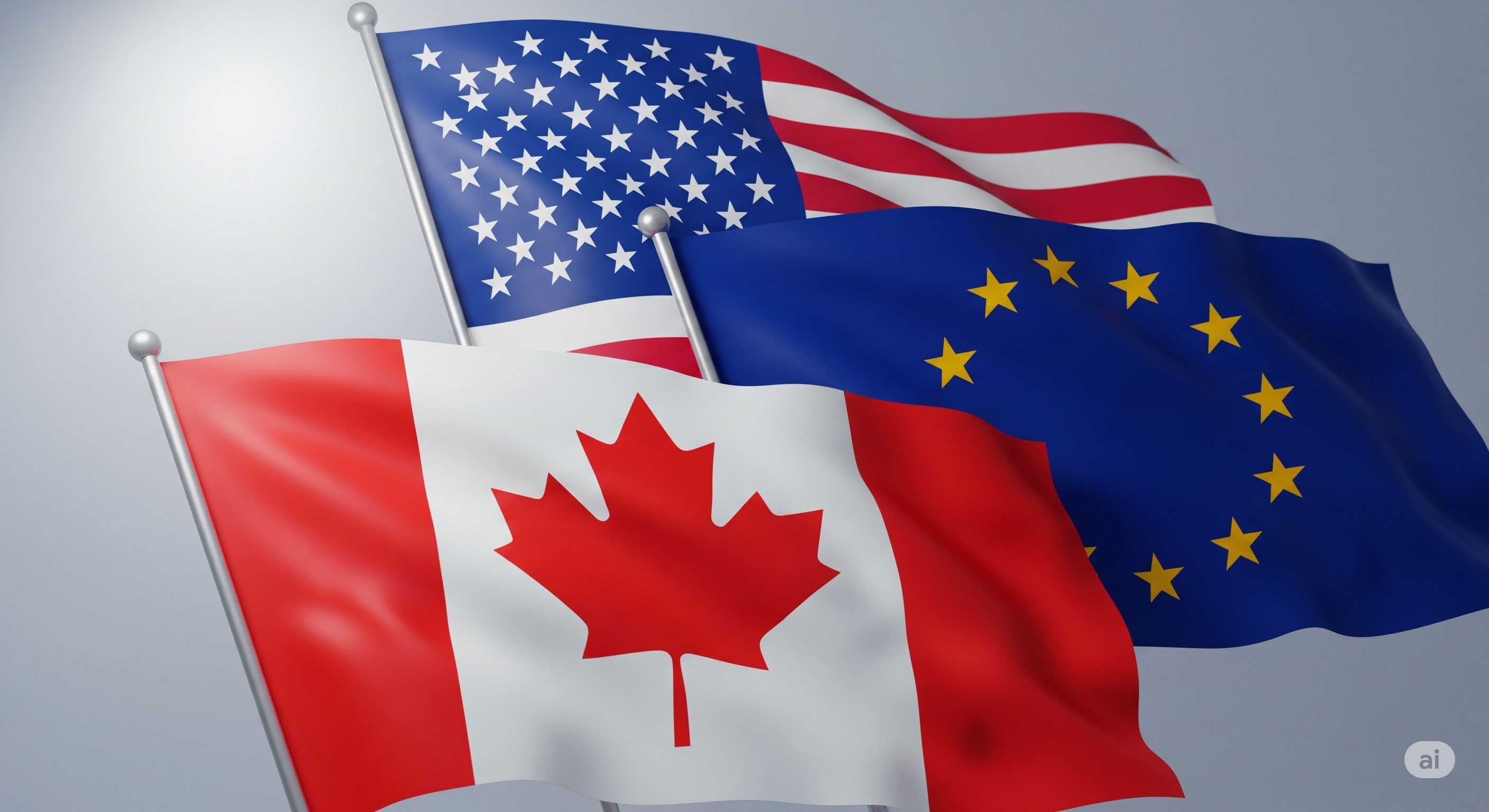PBON Blog

Canada's Continental Crossroads: The Pros and Cons of Merging with the USA or Joining the EU
Wed, Aug 13, 2025 12:00 PM GMT
In an era of shifting global alliances, economic uncertainties, and geopolitical tensions, the idea of Canada redefining its sovereignty through integration with larger entities has sparked intriguing debates. While Canada enjoys strong ties with both the United States—its southern neighbor and largest trading partner—and the European Union via agreements like the Comprehensive Economic and Trade Agreement (CETA), full membership in either remains a hypothetical scenario. This article explores the advantages and disadvantages of Canada potentially joining the USA as the 51st state or becoming an EU member state, drawing on expert analyses and public discussions. Though unlikely in the near term, such thought experiments highlight the trade-offs between economic gains, cultural preservation, and political autonomy.
Joining the United States: A North American Powerhouse or Loss of Identity?
Canada and the USA share a 5,525-mile border, similar cultural roots, and intertwined economies, making a merger seem plausible on the surface. Proponents argue it could supercharge growth, while critics fear erosion of Canada's distinct character.
Advantages
- Economic Integration and Growth: Merging would eliminate trade barriers, granting Canadian businesses seamless access to the vast U.S. market, potentially boosting jobs, wages, and investment. This could lower taxes for Canadians, freeing up funds for personal needs like healthcare, and harmonize policies to streamline cross-border operations. Access to cheaper goods and services, along with increased foreign investment, could revitalize sectors like manufacturing and tech.
- Enhanced Security and Global Influence: Canada would benefit from the U.S.'s robust military infrastructure, reducing its own defense spending amid rising global threats. On the world stage, Canadians could amplify their voice through America's diplomatic clout, contributing more effectively to international decisions.
- Innovation and Infrastructure Boost: Exposure to the competitive U.S. environment might spur entrepreneurship and innovation, while unified infrastructure—like roads and railways—could develop Canada's vast northern regions. Simplified travel and trade would ease bureaucratic hurdles, such as visas and customs.
Disadvantages
- Erosion of Sovereignty and Cultural Identity: As a single state in a federation of 51, Canada risks losing its independent voice in global affairs and seeing its unique multicultural identity overshadowed by American norms. Political representation might diminish, with decisions on issues like gun control or environmental policy dictated from Washington.
- Threats to Social Systems: Canada's universal healthcare could transition to a more privatized U.S. model, potentially leading to higher costs and inequities, causing public backlash. Broader social protections, including welfare and education, might weaken, and differences in areas like women's rights or environmental standards could spark friction.
- Economic and Political Risks: Resource exploitation might favor U.S. interests, leading to lost profits for Canada, while political instability in the U.S.—such as executive overreach—could drag Canada into domestic turmoil. Cultural clashes and resistance from Canadians valuing their "politeness" and social democracy could hinder integration.
Joining the European Union: Transatlantic Ties or Geographic Mismatch?
The EU, a bloc of 27 nations focused on shared prosperity and values, might seem an odd fit for Canada geographically, but shared commitments to democracy, human rights, and sustainability make it a compelling "what-if." Canada already trades heavily with the EU, but full membership would deepen ties.
Advantages
- Expanded Trade and Mobility: Membership would build on CETA by fully integrating Canada into the EU's single market, reducing non-tariff barriers and enabling free movement of goods, services, and people. Canadians could live, work, or study across Europe without visas, opening educational and career opportunities.
- Diplomatic and Economic Security: As an EU member, Canada could hedge against U.S. economic pressures, gaining influence in the European Parliament and Council to shape policies. It would upgrade social rights, like workweek limits and environmental standards, aligning with Canada's progressive values.
- Symbolic and Strategic Benefits: Joining a decentralized union—without a central army or taxes—could symbolize sovereignty while fostering alliances with like-minded nations like France and Germany. It might enhance global clout and provide a buffer in trade disputes.
Disadvantages
- Geographic and Regulatory Hurdles: The EU's "European continent" requirement poses a fundamental barrier, and adopting the full acquis communautaire—thousands of laws since 1957—would demand massive overhauls in areas like agriculture, tariffs, and currency (switching to the euro). This could take decades and require unanimous approval from all 27 members.
- Sovereignty and Economic Trade-offs: Canada would cede some autonomy to EU institutions, with decisions from the European Court potentially overriding national ones, and become a net budget contributor funding less prosperous regions. Free movement might invite migration challenges, and applying EU tariffs could spark U.S. trade conflicts.
- Domestic and Practical Challenges: Political polarization— with Western Canada leaning U.S.-ward and Eastern toward Europe—could divide the nation. Onerous regulations might harm sectors, and the process's uncertainty (e.g., like Turkey's stalled bid) reduces feasibility.
A Thought Experiment with Real Insights
Ultimately, Canada joining the USA or EU is more fantasy than forecast, given deep-rooted sovereignty, geographic realities, and existing partnerships. However, these scenarios underscore the value of diversification: strengthening ties with both could yield benefits without the downsides of full integration. As global dynamics evolve—perhaps amid U.S. protectionism or European expansion—Canada's path forward lies in balancing independence with collaboration, ensuring the maple leaf stands tall on its own terms.